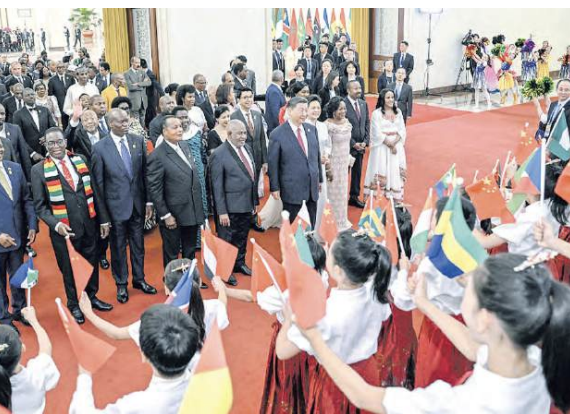

BY ONYANGO K’ONYANGO
For a long time, Western investors have portrayed Africa as an insecure region plagued by power-hungry leaders and hunger-stricken population.
This perception has often deterred the flow of large-scale investments and development support, depriving the continent of much-needed progress.
From roads to railways and ports, many Western investors have largely failed to back Africa’s infrastructure needs, opting to focus on intangible projects such as governance, fighting corruption, HIV/AIDS and military training.
While these efforts are important, they lack immediate, tangible impact of infrastructure projects which are crucial for economic development.
In contrast, China’s approach through large-scale infrastructure projects has been more impactful, addressing urgent needs and offering visible results.
For many Africans, a new road, railway, or port offers more immediate benefits than capacity-building programmes.
Through initiatives such as the Forum on China-Africa Cooperation and the Belt and Road Initiative, China has continued to invest heavily in Africa, bringing much-needed development.
Chinese investors have taken risks where Western investors have hesitated, unlocking Africa’s economic potential through substantial infrastructure projects.
Beijing has not only provided funding but has also shared expertise and technology, bolstering local economies and improving lives.
In a world of intense geopolitical competition, China stands out as a country that has shown Africa a path to industrialisation and modernisation without imposing stringent conditions unlike many Western countries and their multilateral institutions.
As a result, China’s growing influence in Africa has prompted Western leaders, who view themselves as geopolitical leaders, to reconsider their strategies.
Some have now shifted from focusing solely on capacity-building programmes to engaging in tangible development projects.
For example, Kenya’s Standard Gauge Railway, conceptualised under the BRI, aims to connect the Indian and Atlantic oceans. Even before this ambitious project is fully implemented, the US has shown interest in the Lobito Corridor, an initiative aimed at countering China’s growing influence.
This suggests China should continue supporting Africa’s development to provoke further competition and help the continent realise its strategic importance in global geopolitics In response to China’s growing presence, the West has begun challenging projects such as the SGR through initiatives such as the G7’s Partnership for Global Infrastructure and Investment.
This project seeks to create Africa’s first transcontinental open-access rail network, starting in Lobito, Angola and linking the Atlantic and Indian oceans.
This newfound interest in African infrastructure is largely driven by China’s extensive investment. Decades of Sino-Africa relations have brought significant development to many African countries, particularly in infrastructure, technology and trade, contributing to positive economic growth.
Critics who once downplayed Sino-African ties are now coming up with counter-projects to challenge China’s influence, something that might not have occurred without China’s proactive investment.
President Joe Biden’s first visit to Africa seeks to assure the continent that Washington understands its development agenda and is ready to help, marking a shift from the decades-long view that Africa primarily needs foreign aid and donations rather than tangible development.
These developments are happening in large part due to China’s sustained commitment to supporting Africa without internal interference. As Kenya continues to benefit from numerous FOCAC and BRI projects, Washington has identified Nairobi as a key ally. It has promised to build an expressway from Nairobi to Mombasa and has also identified Angola as a geopolitical partner.
Biden’s visit to Angola signals US’s commitment to actualising the multi-billion-dollar Lobito Corridor project, as well as exploring mineral resources in Zambia and the Democratic Republic of Congo. China’s footprint can be seen in almost every African country, something that is unsettling for some Western nations.
With a population of 1.3 billion,
Africa faces an annual infrastructure
funding gap of approximately $100
billion. China’s promise to fund 30
infrastructure projects, made during
the ninth FOCAC in Beijing in September, will go a long way towards
addressing this deficit.


















